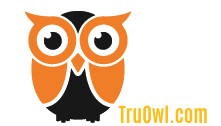Learning the ins and outs of medicine is just the beginning of what it takes to become a doctor. For this purpose, books outside of textbooks can help students of medicine and pre-med develop empathy and a better grasp of ethical dilemmas. Discover the top books for doctors and aspiring healthcare providers with our comprehensive overview. To help students approach patient care, medical ethics, and the reality of healthcare from various angles, these books on medicine offer ideas that help them navigate the field with clarity and empathy.
The Value of Reading Beyond Textbooks
Broader reading is essential for those in medicine because it encourages empathy, ethical awareness, and personal growth. Reading pre med books and other influential texts enhances students’ understanding of patient experiences, emotional challenges, and the complexity of medical ethics. Some of the best medical books prepare future doctors by:
- Developing Empathy: Books about medicine reveal patient stories, helping students better understand the emotions and challenges patients face.
- Preparing for Ethical Challenges: Books focused on ethics and patient autonomy allow students to reflect on the weighty decisions that are part of medical practice.
- Reflecting on Career Commitment: Exploring top books that cover medical realities helps students assess their dedication and resilience for the field.
Indeed, reading these medical books broadens one’s education and cultivates the interpersonal skills and compassion essential in healthcare.
Top Recommended Medical Books in Diverse Themes
1. Patient Care.
“When Breath Becomes Air” by Paul Kalanithi
One of the best medical books for anyone considering a career in medicine, “When Breath Becomes Air”, is a profoundly moving memoir by Dr. Paul Kalanithi, a neurosurgeon who became a patient after being diagnosed with terminal cancer. His reflections on life and death offer a rare view into the emotional depth of patient care, encouraging medical students to approach their future roles with compassion and thoughtfulness.
“Being Mortal” by Atul Gawande
This top book by Dr. Gawande discusses end-of-life care, emphasising the importance of prioritising quality of life. It challenges the traditional medical focus on extending life at all costs, reminding future doctors of the significance of patient autonomy. Thus, this essential medicine book helps students understand the importance of compassionate care in the geriatric and palliative fields.
2. Medical Ethics.
“The Immortal Life of Henrietta Lacks” by Rebecca Skloot
Being a cornerstone among books about medicine and ethics, this work dives into the story of Henrietta Lacks. The point is that her cells were used in research without her consent. Skloot’s narrative raises questions about patient rights and informed consent. Thus, it provides a critical perspective for students exploring ethical complexities in medical research.
“Five Days at Memorial” by Sheri Fink
This gripping account documents the experiences of doctors and nurses in a New Orleans hospital during Hurricane Katrina. Fink’s work is a top book for readers interested in understanding medical ethics under crisis conditions. It offers insights into the intense decisions healthcare professionals must make in extreme situations.
3. Healthcare Challenges.
“The House of God” by Samuel Shem
Known for its unflinching look at the pressures of medical residency, “The House of God” is a classic medicine book that explores the mental and emotional strains of being a doctor. Some critics argue that the book’s portrayal is overly cynical. Still, it’s considered one of the best medical books for honest reflection on residency and burnout. It is written so that it challenges students to prioritise balance and self-care.
“Mountains Beyond Mountains” by Tracy Kidder
It is a biography of Dr. Paul Farmer, who dedicated his life to treating infectious diseases in impoverished communities. No wonder it is a top book for aspiring doctors interested in global health. The narrative contemplates a moving perspective on the challenges and rewards of working in underserved regions. This way, it inspires those considering public health or international medicine.
4. Specialised Fields.
“The Man Who Mistook His Wife for a Hat” by Oliver Sacks
Among the top books about medicine in neurology, this collection of case studies by Dr. Oliver Sacks provides a fascinating look into the intricacies of the human brain. Sacks’s empathetic approach to his patients reminds students of the importance of understanding each patient’s unique experience ─ a critical skill for anyone interested in neurology or psychiatry.
“The Emperor of All Maladies: A Biography of Cancer” by Siddhartha Mukherjee
One of the best books for doctors focusing on oncology, Mukherjee’s Pulitzer Prize-winning biography of cancer covers the scientific, historical, and emotional dimensions of treating the disease. It’s a must-read for students exploring the field of oncology, offering both a technical overview and a compassionate look at the struggles patients and doctors face.
Impact and Critique of Notable Books
Some of these best medical books, like “The House of God,” are praised and critiqued for their perspectives. While it’s appreciated for highlighting the realities of residency, some readers find its portrayal of medical training too harsh or disillusioning. Despite this, many medical and pre-med students still regard it as an essential book that raises awareness about burnout and the need for support systems.
On the other hand, books like When Breath Becomes Air and Being Mortal are celebrated for their empathetic narratives. However, some readers find the themes of mortality and end-of-life care emotionally intense. These critiques encourage students to approach each book with an open mind and form their opinions on the profession’s demands and ethical complexities.
Personal and Professional Benefits of Reading Medical Books
Reading these top books about medicine offers students personal and professional growth, such as:
- Improved Communication and Empathy: Books like “Being Mortal” and “What Doctors Feel” prepare students to approach difficult conversations with patients with understanding and patience.
- Emotional Resilience: Books about medicine that address burnout and ethical challenges, like “The House of God,” encourages students to recognise the importance of emotional well-being.
- Career Reflection and Motivation: Stories like “Mountains Beyond Mountains” highlight doctors’ impact and inspire dedication and compassion for underserved communities.
These books for doctors and future healthcare professionals remind readers of the importance of empathy, resilience, and commitment to patient care.
Books for Self-Reflection and Career Development
“Complications: A Surgeon’s Notes on an Imperfect Science” by Atul Gawande
One of the best medical books that reflects on the fallibility of doctors, Gawande’s “Complications” examines the tough decisions and uncertainties inherent in medical practice. This is a valuable book for students learning to accept that medicine is as much about navigating uncertainties as it is about knowledge.
“What Doctors Feel” by Danielle Ofri
This pre med book provides insight into the emotional landscape of being a doctor, from compassion fatigue to moments of joy in patient care. Ofri’s work is especially relevant for students to understand the emotional demands of healthcare and build resilience.
Through these medicine books, students can assess their commitment to the field and explore a medical career’s personal and ethical aspects.
In Conclusion
For a well-rounded medical education, reading the best medical books gives you more than just information ─ it helps you develop your morals and feelings. Therefore, students in medicine and pre-medicine can learn empathy, become more resilient, and think about their commitment to the field. They can easily do it by picking one or two books from this list that speak to them or are relevant to where they are in their studies. These books about medicine will help you learn more about the field and care for patients in a more profound, more caring way.

